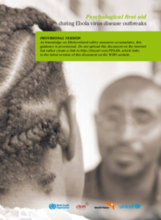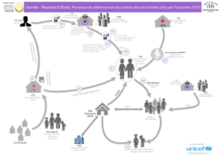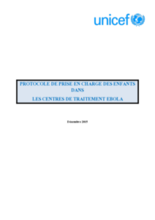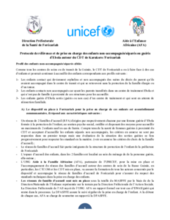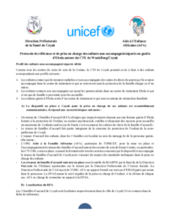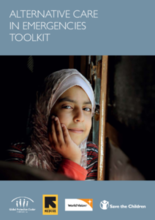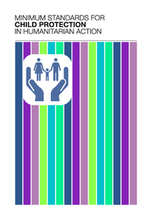This section includes resources on the response to the COVID-19 pandemic as it relates to child protection and children's care.
News on COVID-19 and Children's Care
Webinars and Events on COVID-19 Response
Displaying 741 - 750 of 756
This guide focuses on psychological first aid, which involves humane, supportive and practical help to fellow human beings suffering serious crisis events. It is written for people who can help others experiencing an extremely distressing event.
To develop the capacity of Red Cross Red Crescent psychosocial workers to adequately address the PSS needs in the Ebola outbreak, guidance materials and PowerPoint presentations are available here for download, along with a three-day programme to train trainers who are able to further disseminate the PSS knowledge and skills to frontline workers.
Processus de référencement des enfants dans les Familles d'Accueil Temporaire (FAT).
Schema illustrant les protocoles de référence et de prise en charge des enfants non-accompagnés/séparés ou guéris d’Ebola autour du CTE de Wonkifong/Coyah et du CDT de Karakoro/Forecariah
Protocole de référence et de prise en charge des enfants non-accompagnés/séparés ou guéris d’Ebola autour du Centre de Traitement Ebola de Karakoro /Forécariah
Protocole de référence et de prise en charge des enfants non-accompagnés/séparés ou guéris d’Ebola autour du Centre de Traitement Ebola de Wonkifong/Coyah
The Alternative Care in Emergencies Toolkit is designed to facilitate interagency planning and implementation of alternative care and related services for children separated from or unable to live with their families during and after an emergency.
The Psychological First Aid Training Manual for Child Practitioners (PFA) was developed by Save the Children Denmark for the Child Protection Initiative, to facilitate training in psychological first aid with a focus on children.
The Minimum Standards for Child Protection in Humanitarian Action were formulated in 2011-2012 by the Child Protection Working Group (CPWG), an inter-agency working group composed of child protection practitioners, academics, and policy makers working to support child protection work in humanitarian settings.
Este informe presenta detalles de talleres para favorecer el desarrollo y adquisición de conocimientos, habilidades y destrezas para lograr una adecuada intervención psicosocial en las poblaciones afectadas por el terremoto/maremoto.

